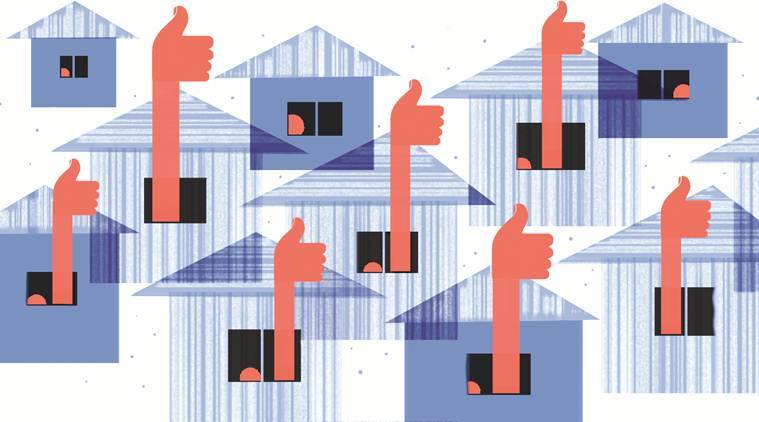 Indians may have the BCG vaccine and inbuilt/innate immunity as an advantage, but we are allowing these gains to be frittered away because of our poor hygiene. (File Photo/Representational)
Indians may have the BCG vaccine and inbuilt/innate immunity as an advantage, but we are allowing these gains to be frittered away because of our poor hygiene. (File Photo/Representational)
As we remain under lockdown, it is vital that all Indians display cooperation to show the world that we can defeat the COVID-19 pandemic, just as we eradicated smallpox and polio. Every citizen must follow physical distancing for at least the next year and maintain hygiene, especially in terms of handwashing and/or using hand sanitiser. Indians may have the BCG vaccine and inbuilt/innate immunity as an advantage, but we are allowing these gains to be frittered away because of our poor hygiene.
Indians have robust inbuilt immunity thanks to the country’s adverse environment but that needs to now be built upon through lifestyle-related measures. Indian cuisine is rich in spices and condiments. Protein-rich and traditional diets, which every community possesses, are the best option in the current circumstances. There are exercises that can be performed while being locked in — yoga, pranayama, surya namaskars and even simple sit-ups can help build our muscles to fight the virus. Studies have repeatedly shown that adequate sleep — for eight hours — helps fight respiratory viruses, including COVID-19.
This is also the ideal time to give up addictions to tobacco and alcohol. Hot-water gargles multiple times a day, avoiding refrigerated food as well as opening windows for fresh air is vital for health.
We are learning something new about COVID-19 each day. It spreads through airborne microdroplets, which are released via speaking, spitting, coughing and sneezing. So, covering our faces, noses and mouths with a cloth or mask and wearing glasses is the key to breaking the chain of transmission. We now also know that the gut is the second site of virus transmission and, therefore, clean toilets are the order of the day. Surfaces which we touch may be a source of transmission for the virus but this can be addressed by sanitiser and soap.
The greatest need is to protect those belonging to vulnerable groups from the virus. These include senior citizens, those with hypertension or other heart conditions, those with lung or kidney disease and others whose immunity may be low due to disease or medication like steroids. Such people need to remain home-bound and should be treated like VVIPs — served and cared for like never before, while maintaining hygiene and distancing. At any sign of poor health, they must be rushed to the nearest healthcare facility. Ensure you connect with your healthcare providers digitally, avoid crowding at hospitals for routine care as the lockdown ends and emergency medical care continues.
COVID-19 has many experimental treatments from simple and cheap ones like chloroquine and deworming agents to expensive medications. Let’s leave that to the experts. It’s time we scale up our testing in all red zones and hot spots. Our research bodies like the ICMR should rapidly publish everything they know about the virus so that we can develop strategies to handle it better.
Coronavirus does not kill by itself. The co-morbidities, delays in test and a lack of access to care are what will lead to deaths, especially when it comes to people from the vulnerable groups. India is the world capital for the manufacture of generic medicines and we must allow Indian innovators to rapidly make antiviral medicines and vaccines. In an emergency, like the current pandemic, patent rules can be tweaked temporarily to save lives.
The key to successfully conquering the coronavirus is early detection, isolation and prompt treatment to delay the “lung storm” (called cytokines storms). Treatment can also be done with simple medicines like hydroxychloroquine as well as through simple strategies like oxygenation and transfusions in later stages. India may not have sufficient ventilators but we have one of the best-trained medical forces. We have a large supply of oxygen, blood and clinical doctors and nurses to fight complications.
Digital India must be incorporated rapidly into Indian medical care so that we can use telemedicine to give home based-care for mild cases as well as monitor recovered, asymptomatic patients. This way, hospitals can be rapidly freed up for more deserving cases.
Hospital staff are at risk and it’s essential to provide them with the best personal protective equipment (PPE) as well as food and rest. All healthcare workers must have COVID testing done and rapid tests must be done in all hospital environments. The workforce should be rotated.
This is an ideal time to have private-public partnerships in healthcare and it’s only matter of time before we sail out of this pandemic. Food and shelter for all is a need for all Indians and governments must ensure rations reach everyone. Crowded clusters like slums urgently need mass prophylaxis with hydroxychloroquine on an experimental basis, as distancing is impossible in such areas. Through this, the virus load will be reduced in the community and lives will be saved.
Rumour mongering and cybercrime is on the rise and we will need new laws to be enacted soon to address these. We need a positive attitude to avoid corona anxiety, predominantly generated by electronic gadgets. We must have at least two hours a day free of screens. For better health, there’s always a smile, music and meditation.
This article first appeared in the print edition on April 22 under the title “An agenda for a fightback”. The writer is the dean of Indian College of Physicians and a well-known endocrinologist, Mumbai. He was awarded the Padma Shri in 2014.